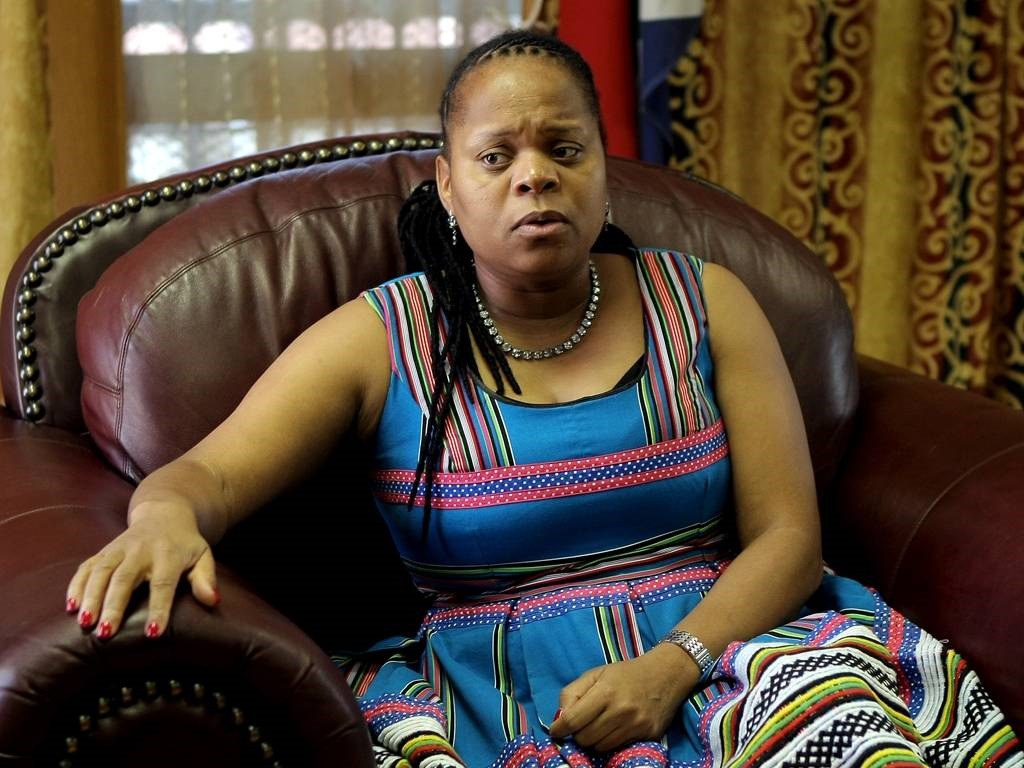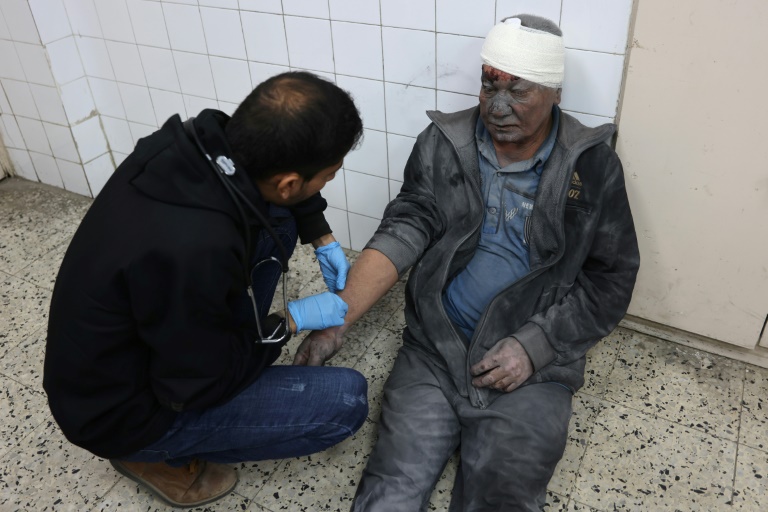News24 | Stakeholders not sold on new Limpopo Health MEC Dieketseng Mashego, but willing to give her a chance

Top Stories Tamfitronics
- Little-known Dieketseng Mashego is the new health MEC in Limpopo.
- She takes over the key position from Dr Phophi Ramathuba, who is now the province’s premier.
- Mashego has no previous experience in the provincial legislature and no health sector background.
Limpopo Health MEC Dieketseng Mashego has clocked her first 30 days in office. Some of those who will engage with her in the coming years are taking a wait-and-see approach to the little-known politician. But they caution that the job of fixing health service delivery in the country’s second-poorest province is urgent.
Mashego comes to the key position in Premier Phophi Ramathuba’s executive council with no previous experience in the provincial legislature and no health sector background.
The 38-year-old is Ramathuba’s successor in the portfolio, with Ramathuba having been promoted to the province’s top political spot.
Mashego was part of the Sekhukhune executive council for the ANC and was speaker for the Elias Motsoaledi Local Municipality.
Despite several efforts to get comment from her over the past week, and initial indications from her office that she would respond, questions Spotlight sent her went unanswered.
READ |Who’s who in the zoo: Breakdown of SA’s 9 health MECs – none of whom is a medical professional
Mashego’s Facebook page includes posts and photos about her political engagements since taking office on 13 June, as well as her campaign for the ANC ahead of the May 2024 general elections.
She lists her work experience as time spent at the National Rural Youth Service Corps within the Department of Agriculture, Land Reform and Rural Development – no position is given. Before that, she was an administrative assistant in the Department of Education, and she lists that she studied at Unisa and Sekhukhune FET College.
Six active directorships
Mashego has six active directorships on the Companies and Intellectual Property Commission records. Her name is listed as first director for Abenzi Business Enterprise, which is based in Dennilton, the area where she is from. The nature of the business is unclear. The other five companies are construction-related entities.
The EFF is the official opposition in Limpopo. Provincial leader Lawrence Mapoulo says Mashego must declare her directorships and any other potential conflicts of interest.
He adds: “The policies are very clear about how you must conduct yourself. She is a citizen of South Africa and she must observe the laws of the country.”
Reserving judgement
Mapoulo says the EFF welcomes a younger cohort of leaders in the provincial legislature and will not judge Mashego’s performance as health MEC prematurely.
He says:
We need the energy of young people, and the EFF will give her 100 days in office. We will observe how she works, how she interacts with the opposition parties – even the my little one parties – and see if she will be guided by the voice of reason.
Mapoulo identifies three key health-related priorities for the EFF.
He says: “We need to insource security in clinics and hospitals. Second is to ensure that doctors who are lingering must be absorbed by all our clinics and hospitals so they can serve the nation. Last, we must do away with the tendering system and focus on absorbing the majority of people so they can be employed.”
According to the Quarterly Labour Force Survey, unemployment in Limpopo was 47.8% in the first quarter of 2024.
READ | Nomantu Nkomo-Ralehoko’s comeback as Gauteng health MEC sparks mixed reactions
Mashego takes over a portfolio whose budget for 2024/25 increased by just over 3% from the previous financial year – a below-inflation increase.
Standing at just R24.6 billion, it is made up of R20.3 billion from the province’s equitable share, R4.1 billion in conditional grants and R220.6 million from the department’s own revenues.
Every cent will be needed.

Phophi Ramathuba is the new premier of Limpopo. (Sandile Ndlovu/Gallo Images/Sowetan)
The province is battling with a high number of unfilled posts, crumbling infrastructure, and the challenge of delivering services to rural communities.
Another mounting concern for the Limpopo government is food insecurity.
In a July 2023 paperresearchers estimated that 52% of Limpopo households did not know where their next meal would come from.
Persistent malnutrition exposes children to health risks including stunting, wasting and immune weakness, according to the World Health Organisation.
Health system challenges
At a clinic-level, there are challenges too.
Ritshidze is a multi-partner project focused on community-led data collection and analysis of healthcare services at clinics across the country.
It surveyed 303 users of Limpopo clinics in the first quarter of 2023, and 78% of respondents said waiting times at clinics were too long.
Based on respondents’ data, Ritshidze estimates that the average clinic waiting time is 2.38 hours per visit.
Ritshidze also found that the province lags in giving stable HIV positive patient multi-month scripts, which could save patients time in queues and transport money, and ease congestion in facilities.
Ritshidze found that only 12% of patients are on the preferred three-month script refill, and that only 56% (compared to the national average of 94%) of people living with HIV in Limpopo were, in the past year, given a viral load test (an important monitoring test that measures the amount of HIV in a person’s blood).
The Treatment Action Campaign (TAC) is one of the partners of the Ritshidze project. Daniel Mathebula is TAC Limpopo manager.
He says the TAC would have preferred an MEC who has a healthcare background:
Since 1994, we have had a bad history of MECs who are not doctors in the province. Ramathuba had professional experience being a doctor, so she did understand the challenges better.
“We are not sure whether the new MEC will deliver. We at the TAC had never heard of her [Mashego] before her appointment. But we’ll give it time, try to meet with her and see what happens going forward,” Mathebula adds.
He adds that Mashego’s priorities should include addressing staff shortages, fixing infrastructure at clinics and hospitals, and sorting out glitches of the laboratory services that have resulted in patients not getting their test results timeously or at all.
READ | Eastern Cape’s new health MEC Thandokazi Capa promises improvement, but critics are doubtful
He also says the TAC is receiving complaints about mobile clinics that exist but are seemingly not offering a proper service.
“We are hearing from rural communities that mobile clinics stay for only a few hours each visit, but we see many mobile clinics parked in town when they should be delivering services.
“We need an MEC who is committed and transparent. She must be able to work with all stakeholders and civil society because we are the people who know what’s happening on the ground.”
‘Too many vacancies’
The Democratic Nursing Organisation of South Africa in Limpopo says a priority for Mashego should be to make acting positions permanent, including that of the province’s chief nursing officer.
Jacob Molepo, the union’s provincial secretary, says: “The issue of staff vacancies must be resolved. We have high staff turnover in the province. Some of this is due to natural attrition, but we also see people leaving for greener pastures in other provinces or the private sector.
“Each month, we are seeing around 10 staff go on retirement, so we also need to prioritise nurses training.”
READ | New North West Health MEC Sello Lehari vows to prioritise NHI
Molepo says there must be a strategy to support nurses working in rural communities.
He adds that the province has pushed to have more 24-hour clinics but has not matched this with adequate staff.
He says: “Sometimes you find there are only two nurses attending to 100 patients a day. The working conditions in a rural area have challenges, so nurses are exhausted and that’s why they leave.
“We are prepared to work with the new MEC and we will not prejudge her. We will meet and put our expectations on the table.”
The MEC’s office was contacted for an interview, but director of communications Neil Shikwambana asked for written questions.
Mashego’s spokesperson Samuel Modipane also received the questions. He said he would try to get Mashego’s responses then redirected questions to Shikwambana. After several prompts and an extended deadline, there has been no response.
Questions put to Mashego included:
- her outline of priorities for the health department;
- what she felt she would be bringing to the role;
- outlines of her background,
- personal management and leadership style;
- how she intends acting on corruption;
- as well as staff shortages and optimising a shrinking budget.
- Mashego was also asked about her directorships, conflicts of interest, and what this means for her as a public official.
*This articlewas first published bySpotlight– health journalism in the public interest. Sign up to theSpotlight newsletter.



 Hot Deals
Hot Deals Shopfinish
Shopfinish Shop
Shop Appliances
Appliances Babies & Kids
Babies & Kids Best Selling
Best Selling Books
Books Consumer Electronics
Consumer Electronics Furniture
Furniture Home & Kitchen
Home & Kitchen Jewelry
Jewelry Luxury & Beauty
Luxury & Beauty Shoes
Shoes Training & Certifications
Training & Certifications Wears & Clothings
Wears & Clothings
















